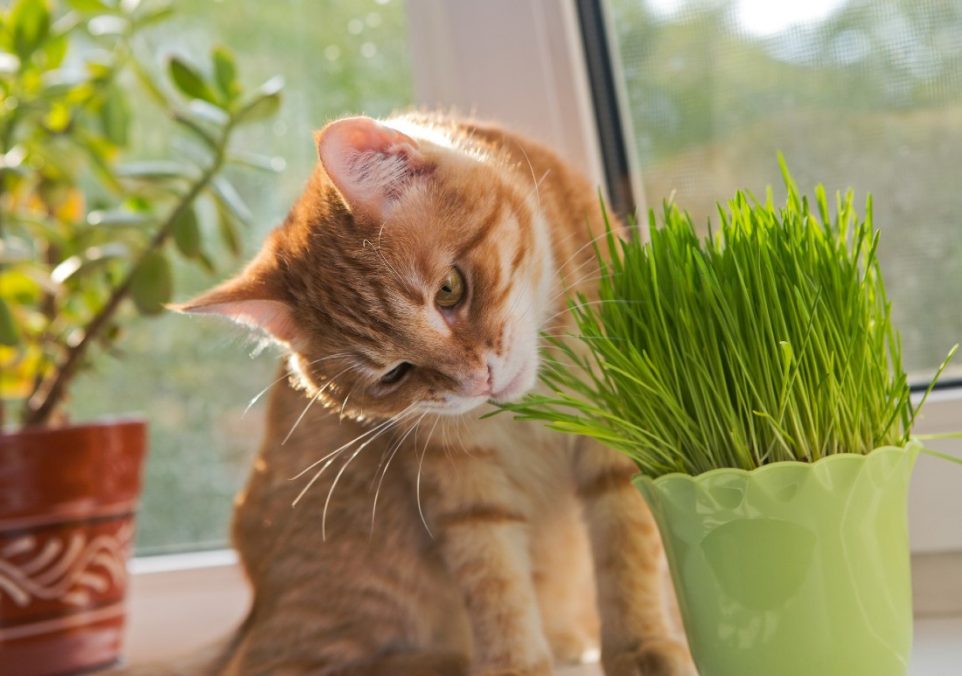Why Do Cats Eat Grass and What To Give Them Instead

It’s a common sight to see cats munching on grass in your backyard or neighborhood. But have you ever wondered why cats do this? Is it just because they find it tasty, or is there something more to it? In this post, we’ll discuss why cats eat grass, what risks this can pose to their health, and what alternatives you can give them.
We’ll also discuss ways to ensure they get the nutrients they need and the other benefits of giving them grass substitutes. Whether your cat is an indoor or outdoor feline, understanding these things is essential for their health and well-being. So, if you’re curious about why cats eat grass and what you should give them instead, keep reading!
What Is Grass Eating in Cats?
Grass eating in cats refers to when they consume grass, usually by grazing on the blades of it. The blades may be eaten whole or chewed and sometimes swallowed. This behavior is typically observed whether the cats are indoors or outdoors, but cats with access to outdoor grassy areas are more likely to indulge in it. Cat grass eating is usually regarded as a normal behavior, however, it could indicate an underlying medical problem in some cases.
Possible Reasons Behind Grass Eating in Cats
The reasons behind cats eating grass may be varied and can range from nutritional deficiencies to psychological reasons. It has yet to be definitively explained. Some owners believe their cats eat grass as part of a natural instinctive behavior while others believe their cats are trying to relieve digestion issues or hairballs. A lack of fiber in their diets and boredom may also lead cats to seek out grass as a source of entertainment.
Health Concerns With Eating Grass
While the majority of cats will not experience any adverse health effects from eating grass on occasion, some may have allergies or sensitivities to certain types of grass or weeds which can lead to irritation or digestive issues. There is also the risk of parasites or toxins depending on where the grass is and if it’s been treated by fertilizers or other chemicals. In cases where a cat is eating an excessive amount of grass, it may indicate an underlying medical condition or an imbalance in their diet which should be evaluated by a veterinarian for treatment if necessary.
Safe Alternatives To Eating Grass
Cat owners who want to provide their cats with a safe substitute for grass can turn to cat grass seeds such as rye, oat, and wheat germ seeds mixed together with soil and water. These can readily be purchased at pet stores and supermarkets and can be grown indoors without taking up too much space. Additionally, they provide the same beneficial effects as outdoor grass but without the potential dangers associated with consuming wild grasses or weeds outside.
Other Cat Health Tips
Cat owners should also look into other ways of keeping their cats healthy such as providing them a balanced diet full of all essential nutrients, offering plenty of water daily, engaging in interactive playtime with toys, providing scratching surfaces for behavioral needs, and keeping up with regular veterinary checkups so any potential health problems can be promptly addressed. Additionally, keeping the environment clean and free from any potential hazards can help ensure a good quality of life for cats at every age stage throughout adulthood.
Conclusion
Cats eating grass can be a normal behavior due to a variety of reasons, but it can also indicate an underlying health condition in some cases. Understanding why cats eat grass and what alternatives you can provide them is essential to improving their health and well-being. So, if you have observed your cat eating grass, it is important to figure out why and how you can help enrich them. As pet owners, understanding the needs of our furry friends is essential to ensure they remain healthy and happy for many years to come.
Your Pet’s Best Interest, Always
At Pet Institute, we take pet care seriously. We're dedicated to transparency, impartiality, and the well-being of your pets in every article, review, and recommendation we provide. Our unwavering commitment to these principles ensures that you, our valued reader, always receive reliable and unbiased information. Let us be your trusted guide in the world of pet care and companionship.